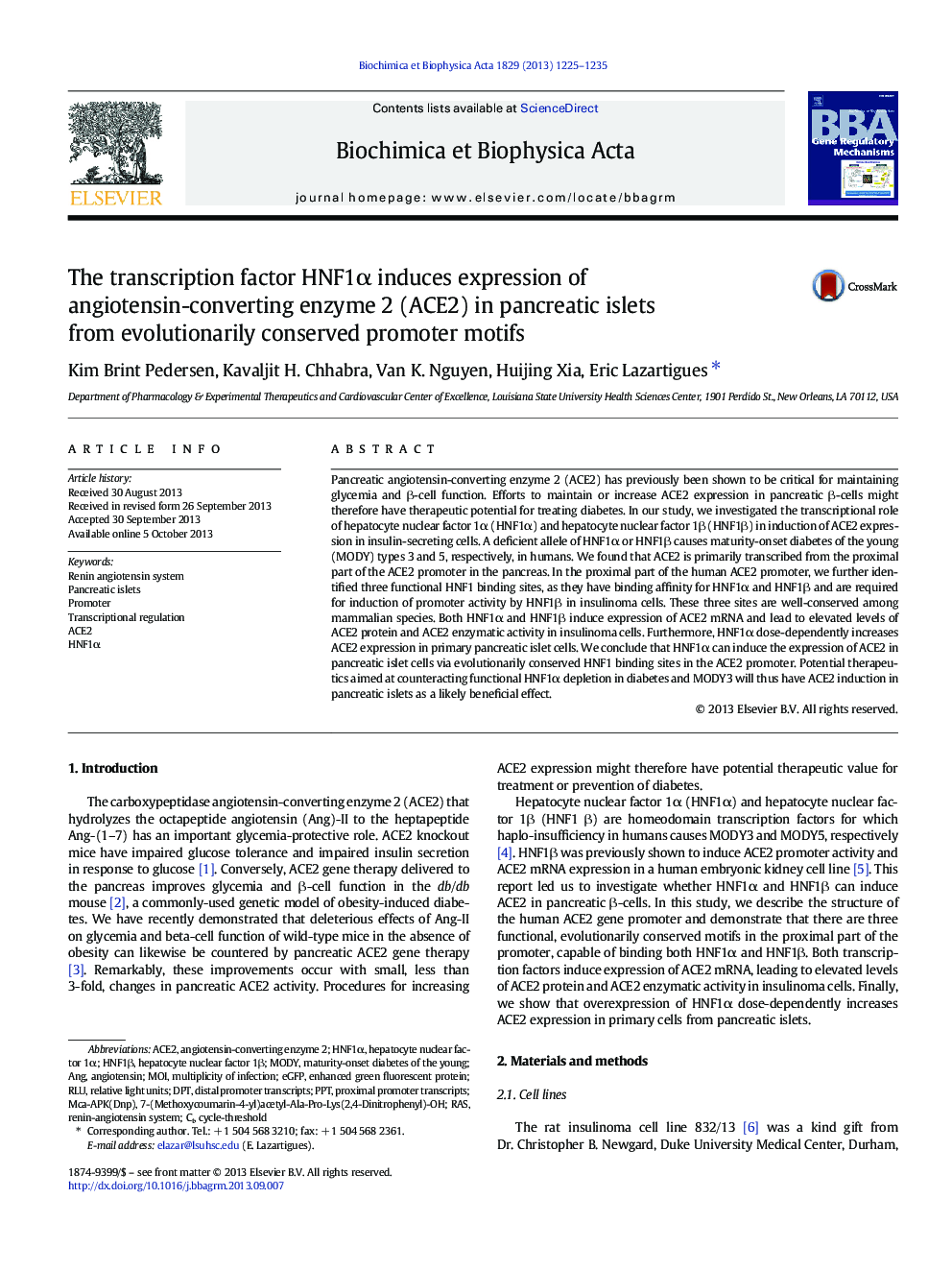| Article ID | Journal | Published Year | Pages | File Type |
|---|---|---|---|---|
| 1946483 | Biochimica et Biophysica Acta (BBA) - Gene Regulatory Mechanisms | 2013 | 11 Pages |
•Two ACE2 promoter regions are well-conserved in placental mammals.•Three evolutionarily conserved motifs of the ACE2 promoter bind HNF1α and HNF1β.•HNF1α and HNF1β induce ACE2 mRNA, protein, and activity in insulinoma cells.•HNF1α dose-dependently induces ACE2 expression in pancreatic islet cells.
Pancreatic angiotensin-converting enzyme 2 (ACE2) has previously been shown to be critical for maintaining glycemia and β-cell function. Efforts to maintain or increase ACE2 expression in pancreatic β-cells might therefore have therapeutic potential for treating diabetes. In our study, we investigated the transcriptional role of hepatocyte nuclear factor 1α (HNF1α) and hepatocyte nuclear factor 1β (HNF1β) in induction of ACE2 expression in insulin-secreting cells. A deficient allele of HNF1α or HNF1β causes maturity-onset diabetes of the young (MODY) types 3 and 5, respectively, in humans. We found that ACE2 is primarily transcribed from the proximal part of the ACE2 promoter in the pancreas. In the proximal part of the human ACE2 promoter, we further identified three functional HNF1 binding sites, as they have binding affinity for HNF1α and HNF1β and are required for induction of promoter activity by HNF1β in insulinoma cells. These three sites are well-conserved among mammalian species. Both HNF1α and HNF1β induce expression of ACE2 mRNA and lead to elevated levels of ACE2 protein and ACE2 enzymatic activity in insulinoma cells. Furthermore, HNF1α dose-dependently increases ACE2 expression in primary pancreatic islet cells. We conclude that HNF1α can induce the expression of ACE2 in pancreatic islet cells via evolutionarily conserved HNF1 binding sites in the ACE2 promoter. Potential therapeutics aimed at counteracting functional HNF1α depletion in diabetes and MODY3 will thus have ACE2 induction in pancreatic islets as a likely beneficial effect.
